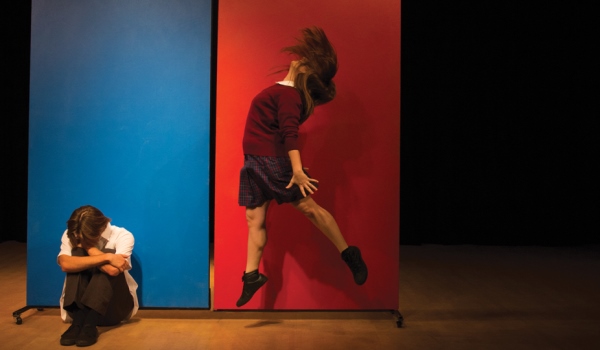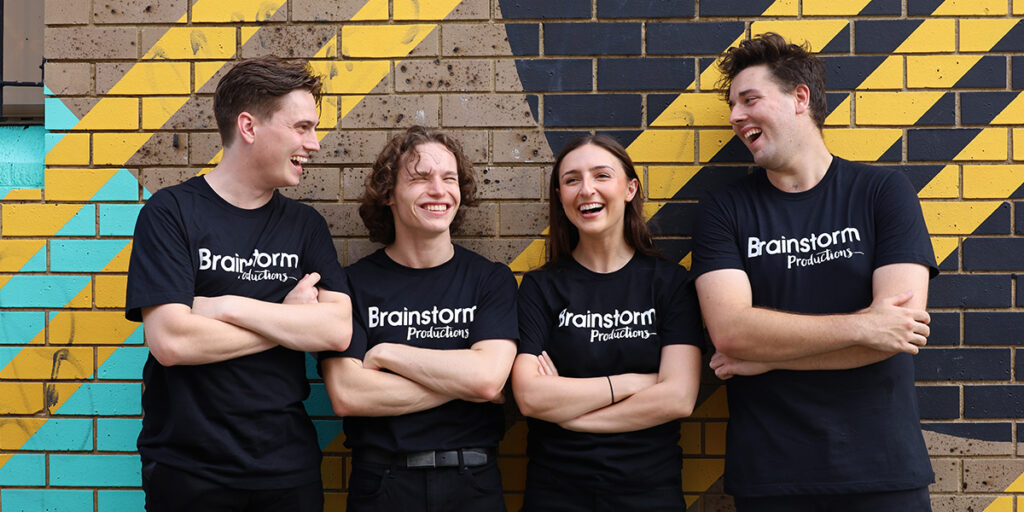So, how is a 2,000 year old ancient art form helping students connect more effectively using today’s technology? Let’s have a look at five reasons why.
1.) Let’s Face Facts
Australia Council’s most recent survey uncovered that ‘9 in 10 Australians think The Arts are an important part of education’ and the Australian Council for Educational Research (ACER) agrees that drama is a powerful tool to engage and motivate students and can improve an individual’s sense of purpose and identity, positively changing the direction of student’s lives.
In addition, Australia’s largest research project based around the benefits of theatre in education was led by the University of South Australia and demonstrated just how powerful performance art can be for students in becoming more critically aware and developing a deeper understanding of their world and their role within it.
For students to be good digital citizens, they need all these skills to behave safely and responsibly online.
2.) Building Positive Relationships
Theatre has been in existence for thousands of years and has played an important role in helping humanity understand their emotions, what it means to be a part of the human race as well as providing solutions to life’s dilemmas. Storytelling is one of the oldest and most powerful techniques we have to communicate and according to Scientific American, we are hardwired to love stories from birth.
Theatre and storytelling helps students understand the human condition, how to express themselves more effectively and can be one of the most important educational tools for helping young people understand empathy, compassion and building positive relationships both online and offline. As George Bernard Shaw wrote, ‘The Arts are the window to the soul’.
3.) Helping Students Succeed
There is literally a mountain of research that demonstrates that students who participate in The Arts will perform better academically. Theatre is vital not only to students’ grades, but also to their success at developing and being good digital citizens. Theatre helps teach us about ourselves and others. It helps students to see how their behaviour online affects others and what changes they can make to improve their lives.
The former Australian Cultural Ministers Council was quite clear when they said that The Arts play a major role in helping to develop the skills needed for the next generation:
“An education rich in creative arts maximises opportunities for learners to engage with innovative thinkers and leaders, and to experience the arts both as audience members and as artists. Such an education is vital to students’ success as individuals and as members of society, emphasising not only creativity and imagination, but also the values of cultural understanding and social harmony that the arts can engender.”
4.) Shared Learning
Rather than learning about digital citizenship through individual modules, text books or online, theatre is a great way to bring students together in a shared, informal learning experience.
The consequences of online issues such as cyber bullying, how to stay safe, keeping personal information private, reporting cyber bullying, how to balance online time, online gaming and chatting, digital reputation, sexting, offensive online behaviour, trolling and the serious risks of unwanted contact with strangers; all come alive right before the students eyes. They can see, but also more importantly feel, how these actions can have significant impacts.
Theatre reminds students that people, not technology, is at the centre of positive digital citizenship.
5.) Taking on the Challenge
Cyber safety and the effects of cyber bullying can touch anyone. These issues do not reside with any given economic, social or cultural background. Theatre is an educational tool that can reach out and captivate ALL students. It can provide ways of engaging with students who are otherwise resistant, can challenge students to transform damaging online behaviour and can help students understand how and where to get help.
Drama reflects student’s real-life experiences and can be a catalyst for not only changing any negative or risky online behaviours, but also empowering students to start a dialogue with each other about what is acceptable online.
Using drama can have a significant effect on student’s digital behaviour, because it provides the opportunity for students to understand other people’s perspectives and delivers real-life solutions to online issues.




